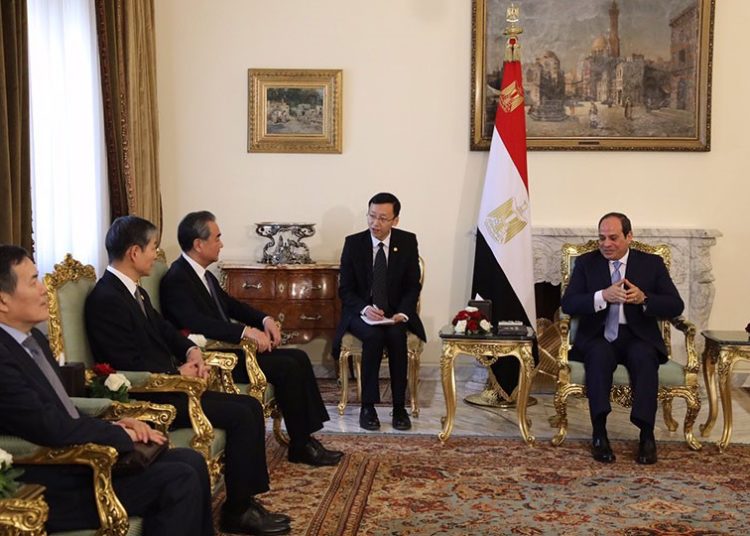Nordic Monitor
China is strengthening its ties with Egypt amid Turkey’s strained relations with the Arab country in a further sign of the growing isolation of the Islamist government of Turkish President Recep Tayyip Erdoğan in the eastern Mediterranean.
Chinese Foreign Minister Wang Yi visited Cairo, the first leg of his Africa tour in the new year, and called for elevating the China-Egypt strategic partnership to a higher level, on January 7-8, 2020.
While the Chinese economic and diplomatic presence expands in the Mediterranean, the visit revealed that China may not take Ankara’s side in the current crises in the region. Egypt objects to Turkey’s policies on the maritime boundaries of the eastern Mediterranean and the situation in Libya.
Wang underlined in Cairo that China considers Egypt a new international shipping and logistics center in the Mediterranean and will work with Egypt for the early political settlement of the crisis in Libya.
Foreign Minister Wang met with Egypt’s President Abdel Fattah el-Sisi, Prime Minister Mostafa Kemal Madbouly, Foreign Minister Sameh Hassan Shoukry and Secretary-General of the Arab League Ahmed Aboul Gheit during his official program in Cairo.
In his meeting with Wang, President el-Sisi said, “Egypt is willing to work together with China to promote the comprehensive strategic partnership to a higher level.” According to the Chinese foreign ministry, he also noted that “Egypt hopes to become a key partner in promoting China’s Belt and Road Initiative (BRI).”
President el-Sisi attended the Second Belt and Road Forum for International Cooperation, which was held in Beijing April 25-27, 2019.
The BRI refers to the Silk Road Economic Belt and the 21st Century Maritime Silk Road, which were launched by Chinese President Xi Jinping in 2013, aiming at building a trade and infrastructure network stretching from East Asia to Europe and Africa along the ancient Silk Road trade routes.

According to the Chinese foreign ministry, Prime Minister Madbouly welcomed “more investments from Chinese enterprises to build the China-Egypt Suez Economic and Trade Cooperation Zone.”
“Both sides should implement the important consensus reached by both presidents and further deepen cooperation in all fields,” Wang said at the meeting. Moreover, he stressed that “China is willing to see greater synergy between the BRI and Egypt’s Vision 2030 and build international shipping and regional logistics centers in Egypt.”

Wang also gave interviews to Egyptian media outlets on the sidelines of his program. “China has maintained contacts with various factions in Libya and actively worked on various parties to facilitate talks for peace,” he told Al-Ahram, underlying that China “will work with Egypt and make active and constructive efforts for the early political settlement of the issue and for peace and stability in the Mediterranean region.”
Khalifa Haftar’s Libyan National Army (LNA) is backed by Egypt and the UAE, while the Government of National Accord (GNA), headed by Fayez al-Sarraj, is supported by Turkey and its close ally Qatar.
During talks on November 27 in Istanbul, al-Sarraj and President Erdoğan agreed to both a security deal and a joint maritime boundary between southwest Turkey and northeast Libya. In line with the security accord, Turkey is deploying military troops and sending Erdoğan’s private paramilitary units (SADAT) and jihadists to fight for the GNA.
Egypt also objects to the Turkey-Libya maritime deal determining their continental shelf and exclusive economic zone (EEZ) coordinates in the Mediterranean.












